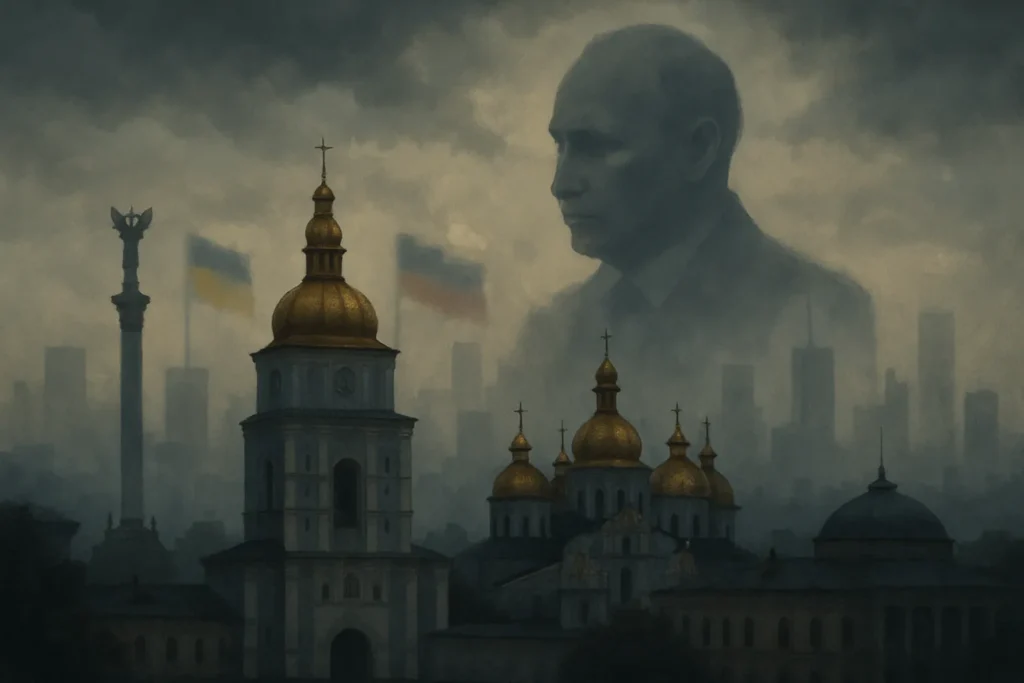Shattered Lives in Kyiv: War Comes Home
In the midst of Ukraine’s agonizing war, a single missile strike can upend hundreds of lives in an instant. The latest Russian bombardment of Kyiv painted an especially grim picture. On a summer day that should have echoed with laughter and routine, chaos and devastation swept through a residential district. The youngest victim, a two-year-old child, was one of at least five children killed as missiles obliterated part of a nine-story apartment building. Ukrainian authorities placed the toll at 31 dead and more than 150 wounded—numbers that include sixteen children, the highest count of young casualties in any Russian attack on the capital since October 2022.
Scenes from Kyiv evoke the tragedy of other cities battered in conflicts past—Aleppo, Sarajevo, Grozny—where families once took shelter behind familiar walls, only to see those walls turn to rubble. The city observed a day of mourning, as neighbors and first responders combed through twisted debris, searching for survivors, retrieving the lifeless bodies, including that of the toddler whose end has already become a symbol of this war’s horror. Ukrainian President Volodymyr Zelenskyy, with a voice raw from grief and anger, called for even tougher sanctions on Russia, demanding the international community confront the reality of Vladimir Putin’s aggression not with words, but with action.
Ukraine’s agony isn’t relegated to one terrible day. According to President Zelenskyy, July alone saw Russia unleash a staggering torrent: over 5,100 glide bombs, 3,800 Shahed drones, and nearly 260 missiles—128 of which were ballistic. Each number tells a story of shattered lives, devastated neighborhoods, and the unrelenting brutality of modern aerial warfare.
Washington’s Words—And the Chasm of Policy Effectiveness
Across the Atlantic, President Donald Trump stood at a White House podium, visibly agitated. Speaking just hours after news of the Kyiv attack, he condemned Russia’s actions as “disgusting,” his tone a blend of outrage and frustration. This marks something of a shift; Trump’s previous overtures to Vladimir Putin have worried both allies and critics who see ambiguous signals rather than moral clarity. Now, as the world watches sickened by the images from Kyiv, the U.S. president finds his hand forced—at least rhetorically.
But what comes next? Trump announced his intention to send special envoy Steve Witkoff to Moscow, a move reminiscent of prior attempts to foster back-channel diplomacy. Witkoff is no stranger to the Kremlin; his last face-to-face with Putin took place this spring. Yet optimism is scarce, with months of diplomatic deadlock and intensifying bloodshed leaving both American and Ukrainian officials skeptical.
“We have given Moscow until the end of next week—if Russia does not end hostilities, we are prepared to impose the most severe economic sanctions yet seen,” Trump declared, his words met with wary applause and muted disbelief among foreign policy analysts.
The track record of sanctions offers little comfort. Harvard economist Kenneth Rogoff argues, “Sanctions can weaken an adversary’s economy, but rarely do they force authoritarian leaders to change strategic course, especially in the midst of an existential conflict.” Recent history backs this up: since Russia’s 2014 annexation of Crimea, waves of Western sanctions have yet to sway Putin’s calculus. Instead, the Kremlin adapts, shifting trade eastward and weaponizing energy exports. Sanctions, while symbolically important, are no substitute for robust global action.
The Crossroads: Western Values, the Human Toll, and What’s Next?
Europe, meanwhile, is losing patience with American equivocation. EU foreign policy chief Kaja Kallas described the Russian onslaught as “depraved,” urging allies to accelerate air defense deliveries and offer unwavering support. Her message resonates with those who believe liberal democracies must move beyond mere condemnation. “We must give Ukraine the means to defend its sky and end this war,” Kallas said, echoing Zelenskyy’s desperate plea.
Moral clarity should guide our foreign policy, not transactional calculation. Throughout history—from the Spanish Civil War, to the anti-apartheid movement, to the international response to the siege of Sarajevo—the arc of justice has often been bent by those willing to speak out and stand up, even when expedient interests counsel caution. The American progressive tradition has long stressed that human rights are not bargaining chips; they are the bedrock upon which lasting peace is forged.
Yet, current U.S. leadership appears stuck between two instincts: the urge to project strength and the desire to avoid protracted entanglement. The tragedy in Kyiv, however, makes clear that inaction—whether in the form of slow-walked weapons assistance or ineffective sanctions—has a price paid in children’s lives, grieving parents, and shattered futures. Do we accept the normalization of this violence, or do we demand that our elected leaders match rhetoric with resolve?
Beyond that, the story unfolding in Ukraine is not just about geopolitics or sanctions. It’s about what kind of world you want to live in. Are liberal societies willing to let authoritarian attacks on civilians become just another headline, or will there be bold, coordinated responses that truly protect the vulnerable and uphold democratic values?
As Kyiv recovers from its deadliest strike in a year, the liberal world faces a test. Will it double down on hollow measures, or finally realize that true solidarity—and tangible support—are the only paths to justice for Ukraine’s victims? Sitting on the fence, history reminds us, is not neutrality. It is a choice—and it’s the wrong one for those who care about peace, democracy, and the innocent lives caught in the crossfire.

